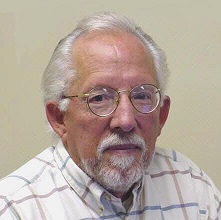Stanley Tweyman is Professor of Philosophy at York University, Canada. We invited him to answer the question “What is Philosophy of Religion?” as part of our “Philosophers of Religion on Philosophy of Religion” series.
Philosophers have traditionally held that there are three ways to attempt to gain knowledge of God – through revelation, through reason (e.g. the Ontological Proof), and through Nature (e.g. through Natural Religion).In this essay, I want to point to a fourth way, which has not been widely recognized, namely, the proof put forth by Rene Descartes in his third meditation.[1]
In the Replies to the Second Set of Objections, Descartes informs us that the aim of his Meditations on First Philosophy is to provide the first principles of human knowledge, i.e. what must be known before anything else can be known. Because these principles are first principles, they cannot be established deductively, but rather they are self-evident, and must, therefore, be grasped through intuition. In the Replies to the Second Set of Objections and elsewhere, Descartes urges that there are two requirements in order to enable us to intuit these first principles – the first is the removal of all sensory prejudice (the influence of the senses), and the second is that we give full attention to what Descartes has written in his Meditations to guide us to the relevant innate ideas, through which these first principles can be intuited. In his third meditation, Descartes maintains that before anything can be known, he must know that God created his mind, and that God is not a deceiver. Given that, at this stage, he does not know anything beyond his existence as a thinking thing, Descartes attempts to establish what he needs to know about God through the innate idea he has of God.



